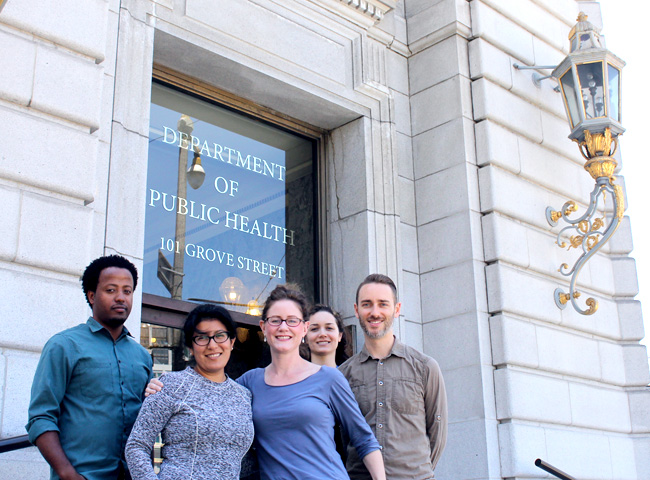The Local 856 membership is made up of almost every profession there is, from aircraft mechanic to zookeeper. In an effort to highlight our Local’s exceptional diversity, we’re launching a monthly series called “I am a Teamster”. Check out the first installment below!
When you hear about a dangerous disease or the recall of your favorite snack due to e.coli on the news, do you ever wonder how it’s traced, and most importantly, stopped? Well, that’s the life’s work of Teamsters 856 Steward Jonathan Carlson and his fellow microbiologists at the San Francisco Department of Public Health who are tasked with testing, tracking, and preventing diseases and outbreaks in the City.
“In disease investigation, everything connects back to the lab,” Carlson, a senior microbiologist, explained. “We receive samples from a wide variety of sources, such as clinicians, physicians, environmental health inspectors, animal control, and hospitals, so that we can conduct disease surveillance and stop outbreaks,” he said.
Each year, Carlson and his Teamsters 856 colleagues test and process hundreds of thousands of some of the most dangerous and communicable diseases and substances imaginable: e.coli, tuberculous, rabies, and HIV, just to name a few, all for the benefit of public health.
Carlson estimates that nearly $2 million in taxpayer money is saved by doing diagnostic work in-house rather than outsourcing to private companies, which can charge nearly three times as much for the same tests.
These highly skilled public employees must have degrees in microbiology and maintain state licensing which requires passing rigorous exams. Over the last few years though it’s been tough to maintain staff as more senior employees retire.
“With the retirement of baby boomers, we lose a lot of valuable experience,” said Carlson, who’s been with the department for close to nine years. “With this kind of work, it’s important to have a continuum of knowledge.”
Carlson believes having a union is essential to support public health and attract and retain qualified microbiologists.
“It’s important for us to be union so that we can continue to negotiate good wages or we’ll lose people to the private sector,” he said. “We have to be competitive to protect public health.”

